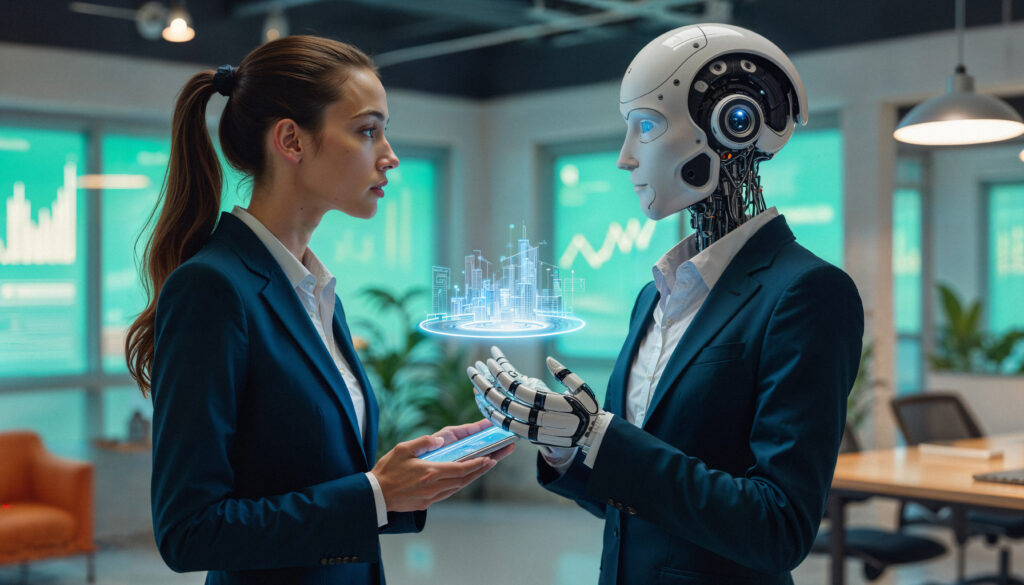Can AI Really Find the Right Hire? What AI Gets Right and What Still Needs a Human Touch

Hiring has always been a complex process. Finding the right talent requires more than scanning resumes; it is about understanding skills, cultural fit, and long-term potential. In recent years, Artificial Intelligence (AI) in recruitment has been a game-changer. From parsing resumes in seconds to predicting candidate success, AI promises speed, efficiency, and smarter hiring decisions.
But here is the real question: Can AI alone find the right hire?
The answer lies somewhere in between. AI is powerful and transformative, but it also has limitations. Let us break down what AI gets right and what still needs a human touch.
What AI Gets Right in Hiring?
Speed and Efficiency
Recruiters often sift through hundreds of resumes for a single role. AI can automate this by scanning resumes against job descriptions and shortlisting candidates who match the requirements. What might take hours or even days can now happen in minutes. This allows recruiters to spend more time engaging with top candidates rather than being bogged down in paperwork.
Data-Driven Decision Making
AI thrives on patterns. By analysing historical hiring data, AI can highlight what top performers in a company have in common – whether it’s specific skills, certifications, or career trajectories. This helps create data-backed hiring decisions instead of relying solely on intuition.
Bias Reduction (to an Extent)
Unconscious bias is a persistent problem in hiring. AI, when designed responsibly, can help neutralize bias by focusing on skills and experience instead of irrelevant factors like gender, age, or background. For example, instead of weighing a candidate’s alma mater heavily, AI tools can prioritize demonstrated achievements and quantifiable skills.
Scalability
For businesses with high-volume hiring needs, AI ensures consistency. It can handle thousands of applications simultaneously, screening candidates fairly across roles and locations without fatigue or oversight.
Smarter Candidate Matching
Advanced AI systems go beyond keyword matching. They can understand the context of a candidate’s experience, align it with the job role, and even predict cultural fit using behavioural assessments and psychometric data.
What Still Needs a Human Touch?
Understanding Nuance and Context
AI can match skills, but it cannot fully grasp subtle nuances like career breaks, passion projects, or unconventional career paths that make candidates unique. For instance, someone who shifted industries might bring diverse insights that an algorithm would overlook. Only a recruiter can connect these dots.
Evaluating Soft Skills
Communication, leadership, empathy, and problem-solving – these are qualities no AI can fully measure. While tools can assess tone in written responses or body language in video interviews, the richness of human interaction cannot be reduced to algorithms. A recruiter’s instinct still matters when evaluating whether a candidate would thrive in a team.
Candidate Experience
Hiring is not just about finding the right person; it is also about creating a positive journey for the candidate. An AI-driven process may feel cold and transactional if not balanced with human touchpoints. Candidates often value personalized conversations, feedback, and a sense of connection – things that only a human recruiter can deliver.
Avoiding Algorithmic Bias
While AI can reduce bias, it can also reinforce it if trained on flawed data. For example, if past hiring data favoured certain demographics, the AI may unintentionally perpetuate the same bias. Humans are essential for auditing and monitoring AI systems to ensure fairness, transparency, and accountability.
Final Decision Making
At the end of the day, AI can recommend – but it cannot replace the judgment of experienced recruiters and hiring managers. Choosing the right hire requires balancing skills, potential, and team dynamics – something no algorithm can do alone.
The Future: Human + AI, Not Human vs. AI
The most effective hiring strategies combine the efficiency of AI with the empathy of humans.
Here is how that looks in practice:
- AI handles the repetitive tasks: Resume screening, scheduling interviews, skills assessments, and data analytics.
- Humans focus on relationships: Understanding motivations, assessing cultural fit, negotiating offers, and ensuring a positive candidate experience.
This balance ensures faster hiring without losing the personal touch that candidates value.
A Smarter Way Forward
Modern recruitment platforms are already moving toward this hybrid model. They use AI to match the right candidates to the right jobs with precision, but the process doesn’t end there. Recruiters step in to interpret results, validate insights, and build trust with both candidates and employers.
Instead of overwhelming recruiters with hundreds of resumes, these platforms curate a shortlist of the best fits – making hiring less about guesswork and more about meaningful decision-making. This is where technology becomes an enabler, not a replacement.
Final Thoughts
AI excels at speed, efficiency, and pattern recognition. It ensures no resume slips through the cracks and no talent is overlooked. But the qualities that make someone the ‘right hire’ – their personality, values, adaptability, and aspirations – still need human judgment.
The future of hiring is not about choosing between AI and humans. It is about combining both. When machines do what they do best and humans bring in empathy and wisdom, organizations do not just hire faster – they hire smarter.
